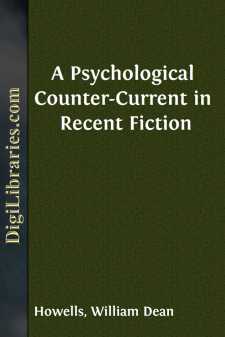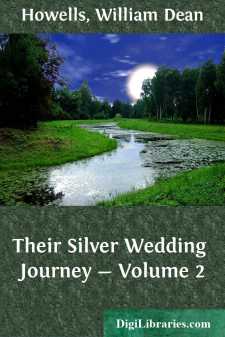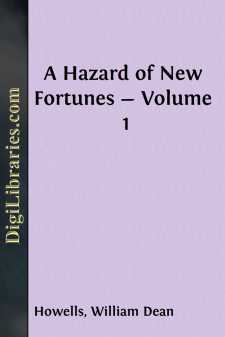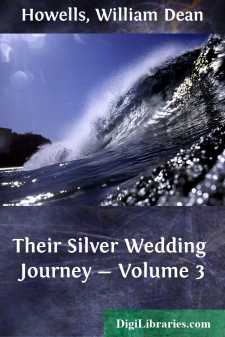Categories
- Antiques & Collectibles 13
- Architecture 36
- Art 48
- Bibles 22
- Biography & Autobiography 813
- Body, Mind & Spirit 142
- Business & Economics 28
- Children's Books 15
- Children's Fiction 12
- Computers 4
- Cooking 94
- Crafts & Hobbies 4
- Drama 346
- Education 46
- Family & Relationships 57
- Fiction 11828
- Games 19
- Gardening 17
- Health & Fitness 34
- History 1377
- House & Home 1
- Humor 147
- Juvenile Fiction 1873
- Juvenile Nonfiction 202
- Language Arts & Disciplines 88
- Law 16
- Literary Collections 686
- Literary Criticism 179
- Mathematics 13
- Medical 41
- Music 40
- Nature 179
- Non-Classifiable 1768
- Performing Arts 7
- Periodicals 1453
- Philosophy 64
- Photography 2
- Poetry 896
- Political Science 203
- Psychology 42
- Reference 154
- Religion 513
- Science 126
- Self-Help 84
- Social Science 81
- Sports & Recreation 34
- Study Aids 3
- Technology & Engineering 59
- Transportation 23
- Travel 463
- True Crime 29
A Psychological Counter-Current in Recent Fiction
Description:
Excerpt
It is consoling as often as dismaying to find in what seems a cataclysmal tide of a certain direction a strong drift to the opposite quarter. It is so divinable, if not so perceptible, that its presence may usually be recognized as a beginning of the turn in every tide which is sure, sooner or later, to come. In reform, it is the menace of reaction; in reaction, it is the promise of reform; we may take heart as we must lose heart from it. A few years ago, when a movement which carried fiction to the highest place in literature was apparently of such onward and upward sweep that there could be no return or descent, there was a counter-current in it which stayed it at last, and pulled it back to that lamentable level where fiction is now sunk, and the word "novel" is again the synonym of all that is morally false and mentally despicable. Yet that this, too, is partly apparent, I think can be shown from some phases of actual fiction which happen to be its very latest phases, and which are of a significance as hopeful as it is interesting. Quite as surely as romanticism lurked at the heart of realism, something that we may call "psychologism" has been present in the romanticism of the last four or five years, and has now begun to evolve itself in examples which it is the pleasure as well as the duty of criticism to deal with.
I.
No one in his day has done more to popularize the romanticism, now decadent, than Mr. Gilbert Parker; and he made way for it at its worst just because he was so much better than it was at its worst, because he was a poet of undeniable quality, and because he could bring to its intellectual squalor the graces and the powers which charm, though they could not avail to save it from final contempt. He saves himself in his latest novel, because, though still so largely romanticistic, its prevalent effect is psychologistic, which is the finer analogue of realistic, and which gave realism whatever was vital in it, as now it gives romanticism whatever will survive it. In "The Right of Way" Mr. Parker is not in a world where mere determinism rules, where there is nothing but the happening of things, and where this one or that one is important or unimportant according as things are happening to him or not, but has in himself no claim upon the reader's attention. Once more the novel begins to rise to its higher function, and to teach that men are somehow masters of their fate. His Charley Steele is, indeed, as unpromising material for the experiment, in certain ways, as could well be chosen. One of the few memorable things that Bulwer said, who said so many quotable things, was that pure intellectuality is the devil, and on his plane Charley Steele comes near being pure intellectual. He apprehends all things from the mind, and does the effects even of goodness from the pride of mental strength. Add to these conditions of his personality that pathologically he is from time to time a drunkard, with always the danger of remaining a drunkard, and you have a figure of which so much may be despaired that it might almost be called hopeless. I confess that in the beginning this brilliant, pitiless lawyer, this consciencelessly powerful advocate, at once mocker and poseur, all but failed to interest me. A little of him and his monocle went such a great way with me that I thought I had enough of him by the end of the trial, where he gets off a man charged with murder, and then cruelly snubs the homicide in his gratitude; and I do not quite know how I kept on to the point where Steele in his drunkenness first dazzles and then insults the gang of drunken lumbermen, and begins his second life in the river where they have thrown him, and where his former client finds him. From that point I could not forsake him to the end, though I found myself more than once in the world where things happen of themselves and do not happen from the temperaments of its inhabitants. In a better and wiser world, the homicide would not perhaps be at hand so opportunely to save the life of the advocate who had saved his; but one consents to this, as one consents to a great deal besides in the story, which is imaginably the survival of a former method. The artist's affair is to report the appearance, the effect; and in the real world, the appearance, the effect, is that of law and not of miracle....












